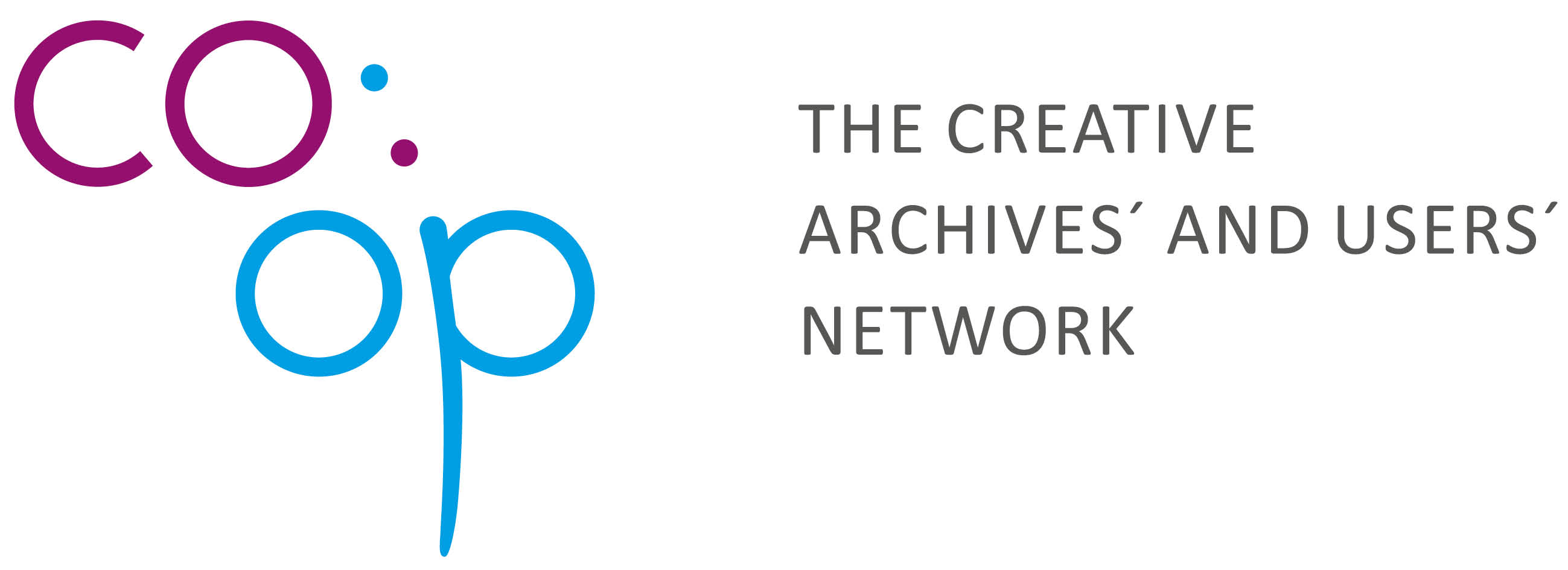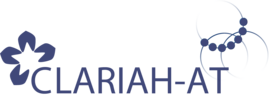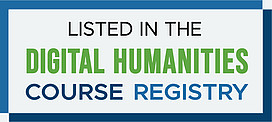CO:OPyright
Programme
Challenges and Practices of Copyright and Licensing
of Digital Cultural Heritage
April 12 & 13, 2017
University of Graz, RESOWI (Universitätsstraße 15)
Participation in the Conference and the Workshops is FREE, but registration is required. Please register at: https://www.eventbrite.com/e/challenges-and-practices-of-copyright-and-licensing-of-digital-cultural-heritage-tickets-32648129434
Pre-Conference Workshops (Wed. April 12)
Workshop A (12:30-14:00)
Legal Issues in the context of the Digitization of Cultural Heritage
(Philipp Maier, University of Graz)
The workshop will specifically highlight those copyright issues that arise during the archiving and making available of protected cultural property. Especially the relevant aspects of digitizing or reproduction of copyrighted works play an important role that has to be explored, since
in general, cultural assets are supposed to be subsequently made publicly available in digital format in order to ensure the widest possible distribution.
The workshop will introduce the guidelines and best practice recommendations that were developed based on the specific needs and concerns communicated to us by the CO:OP partners.
Workshop B (14:30-16:00)
Open Licenses for Research Data, Academic Publication and Digital Cultural Heritage
(Barbara Fischer, Wikimedia)
There is a lot of uncertainty around the use of open licenses. Buzzwords like copyright, public domain and licensing laws tend to prompt questions and uncertainty in many institutions. Many employees at GLAM institutions quickly feel out of their depth when asked to mark their digital content as freely re-usable for Wikimedia and other projects.
There are seven types of Creative Commons licenses alone, but only three of them are free in the Wikimedia sense of the word. Besides copyright law, other legal areas such as the right to one’s own image and the property rights of lenders and donors must also be taken into account. Such uncertainty often prevents digital content from being marked as freely available.
Workshop C (16:30-18:00)
OpenGLAM - Picture: Action!
(Sylvia Petrovic-Majer, Open Knowledge Foundation)
A specific characteristic in GLAM is the diverse application of law, and a particularly central issue is the digital copyright on images (reproduction, picture, photography...). What are pictures able to achieve for us? What do they need? The workshop will provide a brief introduction in digital project development despite the current legal situation and reveal some vision for future steps!
- Live itself is not the truth. It is on us to accord life to stones and pebbles! (Frederick Sommer)
Conference Sessions (Thu. April 13)
Session A (9:00 – 10:30)
- Opening and Welcome
- Copyright and the creative machine: teaching robots copyright from copywrong
(Burkhard Schafer, University of Edinburgh) - An International Perspective on the Public Domain
(Pawel Kamocki, Institut für Deutsche Sprache)
<Coffee break>
Session B (11:00 - 12:30)
- The European copyright framework and the digitization of cultural heritage
(Philipp Maier, University of Graz) - Digital access to archival holdings in Croatia: practice, possibilities & expectations (Vlatka Lemic, Croatian State Archives)
- Diplomatics and Diplomacy: Experiences of the Balkan Institute between Vatican, homeland and Athos
(Zarko Vujosevic, Institute for Balkan Studies of the Serbian Academy of Sciences)
<Lunch break>
Session C (13:30 - 15:00)
- The copyright questions of the project ‘The digitization of the medieval documents from the National Archives of Romania’, and the online database www.arhivamedievala.ro
(Marius Diaconescu, University of Bucharest) - Auckland Museum’s Collections Online – Gifting our Collection for the Benefit of All
(Sarah Powell, Auckland War Memorial Museum) - The Governance of cultural memory through audiovisual broadcast archives: preservation and accessibility in four European countries
(Katharine Sarikakis / Olga Kolokytha / Krisztina Rozgonyi / Izabela Korbiel, University of Vienna)
<Coffee break>
Session D (15:30 - 17:00)
- Contemporary writers and contemporary copyright
(Vanessa Hannesschläger, Austrian Academy of Sciences) - DALICC – The Data Licenses Clearance Center
(Tassilo Pellegrini, UAS St. Pölten)
Call for Papers
++++++++++++ Deadline extended until January 23, 2017! +++++++++++++++
Conference at the University of Graz
April 12/13, 2017
The conference is hosted by the Centre for Information Modelling - Austrian Centre for Digital Humanities and the Institute of the Foundations of Law, Section 'Law and ICT' at the University of Graz (Austria).
In the age of digital information technology and the constant availability of information through the Internet, it is not only important to have democratic access to knowledge, but also essential to consider the potential that lies in the critical production and expansion of knowledge.
The CO:OP – short for Community as Opportunity: the creative archives' and users' network – co-funded by the Creative Europe programme of the European Union aims to strengthen and promote the co-operation between institutions preserving our common cultural heritage and the general public.
Of particular interest and concern to cultural heritage institutions are issues of copyright on, provision of and access to digitized material. There is a recognizable political drive in the European Union to facilitate public access to cultural heritage – and data in general – hosted at public institutions. However, the lack of legal harmonization and the often unclear national legislations on the use and provision of resources by public cultural heritage or scientific institutions has been prohibiting a much broader engagement between the general public and its own cultural heritage.
This conference invites:
a. legal experts to present contributions on the legal framework concerning digital cultural heritage resources on a national or international level, the European and international conditions, political developments and innovative approaches to improve the situation on the use and provision of such resources,
b. experts and curators from cultural heritage institutions to share their best - and worst! - practice examples with projects that had to deal with copyright and licensing as exemplary showcases for the CO:OP community at large.
These two different perspectives on the topic will be presented in consecutive sessions of 20-minute papers on April 13 and brought together in a Panel Discussion with stakeholders from cultural heritage institutions, the legal academic community and representatives of funding bodies and political entities at the end of the conference.
Pre-Conference Workshops on April 12 will provide hands-on sessions on pertinent licensing tools, Open GLAM, and the introduction of a Guidelines and Best Practices document regarding the core topics of the conference which will serve as one of the deliverables and milestones of the CO:OP project.
The deadline for submissions is January 9, 2017. Please submit your abstracts (of up to 800 words), and a short biography of the author(s), to: zim(at)uni-graz.at.
The submissions will be peer reviewed and the review results returned by February 13, 2017.
Online version of this CfP at: http://informationsmodellierung.uni-graz.at/veranstaltungen/coopyright








